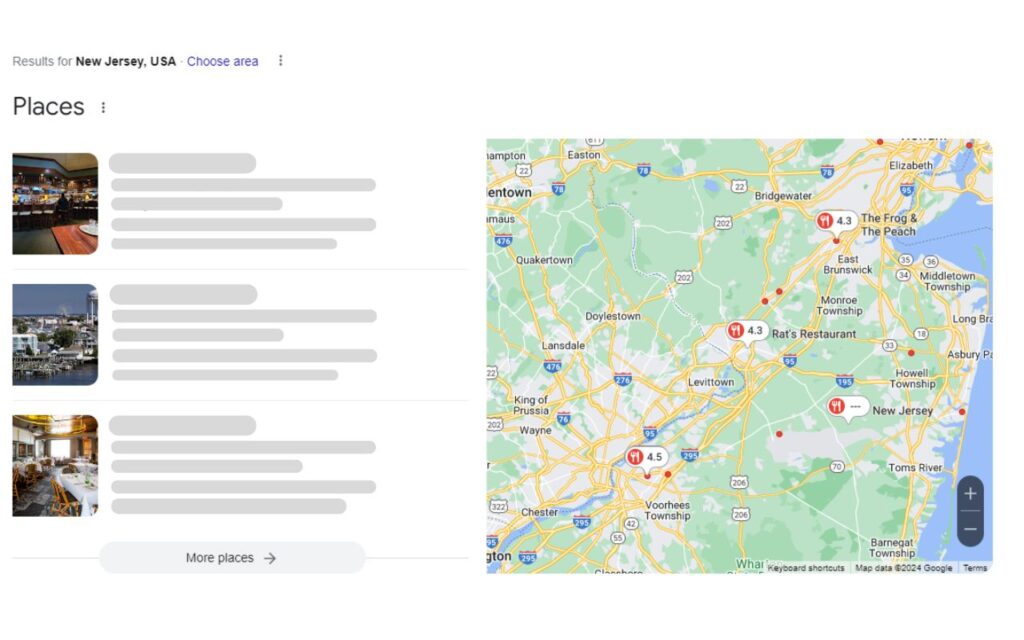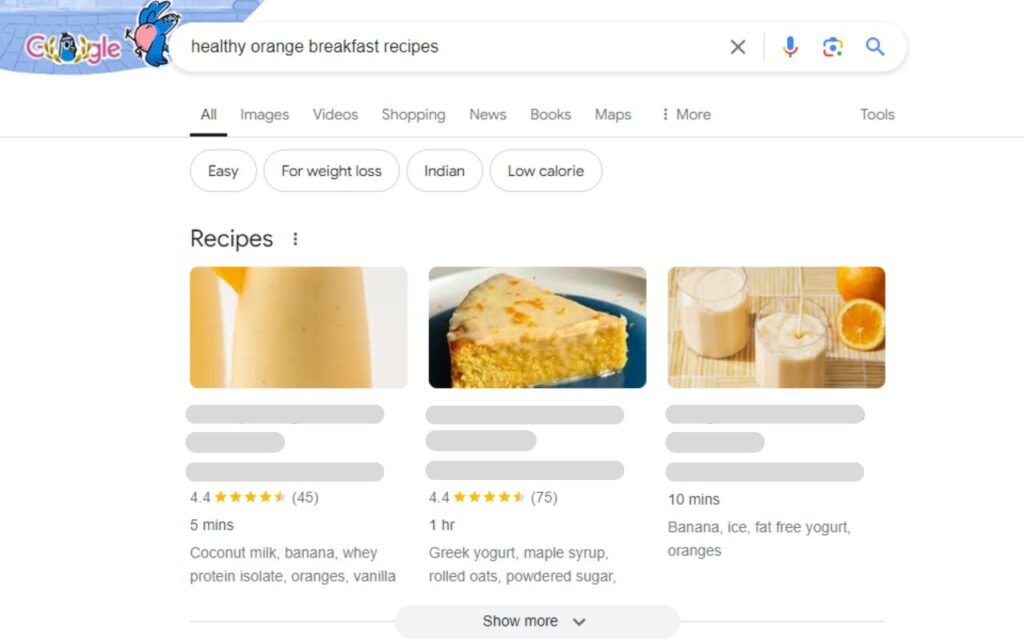In 2024, the digital landscape continues to evolve, and for restaurants, mastering search engine optimization (SEO) is no longer optional it’s crucial. As more customers search online for dining options, restaurants must ensure they are visible and accessible. This article delves into why SEO for restaurants is essential in 2024 and provides best practices to help restaurants thrive in a competitive market.
The Importance of SEO for Restaurants in 2024
The Shift to Online Search
The way customers discover restaurants has shifted dramatically over the past decade. Gone are the days when people relied solely on word-of-mouth or print directories. Today, potential diners use search engines to find local eateries, read reviews, check out menus, and even make reservations. For restaurants, having a strong online presence is crucial to attracting and retaining customers.
The Impact of Local SEO on Restaurants
Local SEO for restaurants is particularly important. When someone searches for “Italian restaurant near me” or “best brunch spots in New Jersey,” search engines like Google prioritize showing local results. This means restaurants must optimize their online presence to appear in these local searches. With a robust local SEO strategy, a restaurant can be visible to potential customers actively looking for dining options.
Competitive Advantage
In the competitive restaurant industry, SEO can provide a significant edge. By appearing at the top of search engine results pages (SERPs), a restaurant can attract more traffic to its website, increase foot traffic to its physical location, and ultimately boost its revenue. In contrast, restaurants that neglect SEO may need help attracting new customers, especially if their competitors invest in strong SEO strategies.
Best Practices for Restaurant SEO in 2024
- Optimize Your Google Business Profile
One of the most effective ways to improve local SEO for restaurants is by optimizing your Google Business Profile (formerly Google My Business). This free tool allows you to manage your restaurant’s appearance on Google Search and Maps.
Key Steps to Optimize Your Google Business Profile:

- Claim and Verify Your Listing: Ensure your restaurant’s listing is claimed and verified on Google. This step is crucial for managing your information and appearing in local search results.
- Complete Your Profile: Fill out every section of your Google Business Profile, including your business name, address, phone number, website, hours of operation, and categories.
- Add High-Quality Photos: Upload high-quality images of your restaurant’s interior, exterior, and dishes. Visual content helps attract potential customers and encourages them to visit your establishment.
- Encourage Customer Reviews: Positive reviews play a significant role in local SEO for restaurants. Encourage satisfied customers to leave reviews on your Google Business Profile, and be sure to respond to both positive and negative reviews.
- Conduct Keyword Research for Restaurants
Keyword research is the foundation of any effective SEO strategy, and restaurants are no exception. Identifying the right SEO keywords for restaurants will help you target the phrases and terms potential customers use to find dining options online.
How to Perform Keyword Research for Restaurants:
- Use Keyword Research Tools: Tools like Google Keyword Planner, Ahrefs, and SEMrush can help you discover relevant keywords for your restaurant. Look for keywords related to your cuisine, location, and dining experience.
- Focus on Local Keywords: Incorporate location-specific keywords into your strategy. For example, “Italian restaurant in New York” or “vegan brunch in San Francisco” are highly targeted phrases that can drive local traffic.
- Include Long-Tail Keywords: Long-tail keywords are longer, more specific phrases with lower search volume but higher conversion rates. For example, “best gluten-free pizza in Chicago” is a long-tail keyword that targets a particular audience.
- Optimize Your Restaurant Website for SEO
Your restaurant’s website is the central hub of your online presence, so it’s essential to ensure it’s optimized for search engines. A well-optimized website can improve your rankings in SERPs and make it easier for potential customers to find you.
Key Elements of On-Page SEO for Restaurants:
- Title Tags and Meta Descriptions: Ensure each page on your website has a unique title tag and meta description that includes relevant keywords. These elements help search engines understand what your pages are about and encourage users to click on your links.
- Mobile-Friendly Design: With more people using mobile devices to search for restaurants, having a mobile-friendly website is critical. Use responsive web design to ensure your site looks great and functions well on all devices.
- High-Quality Content: Create high-quality, informative content that addresses the needs and interests of your audience. This could include blog posts, menu descriptions, chef profiles, etc. Incorporate your target keywords naturally into the content.
- Fast Loading Speed: Page loading speed is a ranking factor in Google’s algorithm. Ensure your website loads quickly by optimizing images, reducing server response time, and minimizing code.
- Leverage Local Citations and Directories
Local citations mention your restaurant’s name, address, and phone number (NAP) on other websites, such as online directories, review sites, and local blogs. These citations help search engines verify your business’s information and improve local SEO.
How to Build Local Citations:
- Submit to Online Directories: Ensure your restaurant is listed on popular online directories like Yelp, TripAdvisor, OpenTable, and Zomato. Make sure your NAP information is consistent across all listings.
- Get Featured on Local Blogs: Contact local food bloggers and influencers to see if they would like to feature your restaurant on their websites. These mentions can boost your local SEO and drive more traffic to your website.
- Monitor and Update Citations: Regularly check your citations to ensure they are accurate and up-to-date. Consistent information can be clear to search engines and harm your local SEO efforts.
- Implement Schema Markup for Restaurants
Schema markup is a type of structured data that helps search engines understand the content on your website. Adding schema markup to your restaurant’s website can enhance how your listing appears in search results.
Benefits of Schema Markup for Restaurants:

- Rich Snippets: Schema markup can create rich snippets, which are enhanced search results that include additional information, such as star ratings, hours of operation, and price ranges. Rich snippets can increase your click-through rate (CTR) by making your listing more attractive.
- Improved Local SEO: Schema markup helps search engines better understand your restaurant’s location, cuisine, and other relevant details. This can enhance your visibility in local search results.
- Enhanced Mobile Search Results: Mobile users often see rich snippets at the top of search results, so implementing schema markup can help you capture more mobile traffic.
- Use Social Media to Boost Restaurant SEO
Social media marketing plays a significant role in restaurant marketing and can also contribute to your SEO efforts. Engaging with customers on social media platforms can drive traffic to your website and improve your search engine rankings.
How to Use Social Media for Restaurant SEO:
- Share High-Quality Content: Regularly post engaging content on your social media channels, such as photos of your dishes, behind-the-scenes videos, and promotions. Include links to your website in your posts to drive traffic.
- Encourage User-Generated Content: Encourage your customers to share their experiences at your restaurant on social media. User-generated content, such as Instagram photos and Facebook reviews, can increase your restaurant’s visibility and attract new customers.
- Use Hashtags Strategically: Include relevant hashtags in your social media posts to reach a broader audience. Use general hashtags like #foodie and location-specific hashtags like #NewYorkEats to connect with potential customers.
- Monitor and Analyze Your SEO Performance
SEO is an ongoing process, and monitoring your performance and adjusting as needed is essential. By analyzing your SEO data, you can identify what’s working, what needs improvement, and how to refine your strategy.
Tools for Monitoring SEO Performance:
- Google Analytics: Google Analytics is a powerful tool that provides insights into your website’s traffic, user behavior, and conversions. Use it to track your SEO efforts’ effectiveness and identify areas for improvement.
- Google Search Console: Google Search Console helps you monitor your website’s performance in Google search results. It provides data on your search rankings, click-through rates, and indexing status.
- SEO Audit Tools: Tools like Ahrefs, SEMrush, and Moz offer comprehensive SEO audits to help you identify technical SEO issues, keyword opportunities, and backlink profiles.
- Invest in Local Restaurant SEO Services
While many restaurant owners can handle basic SEO tasks, investing in professional local SEO services can take your strategy to the next level. SEO experts have the knowledge and experience to optimize your online presence, improve your rankings, and drive more traffic to your restaurant.
Benefits of Hiring a Local Restaurant SEO Expert:
- Tailored SEO Strategy: A local SEO expert can develop a customized strategy that aligns with your restaurant’s goals and target audience.
- Time Savings: Managing SEO can be time-consuming, especially for busy restaurant owners. By outsourcing SEO to a professional, you can focus on running your restaurant while the expert handles your online presence.
- Improved Results: SEO experts can access advanced tools and techniques to deliver better results than DIY efforts. They can also stay up-to-date with the latest SEO trends and algorithm changes to keep your strategy effective.
Conclusion
In 2024, SEO for restaurants is more important than ever. With the increasing reliance on online searches to find dining options, restaurants prioritizing local SEO, keyword optimization, and high-quality content will have a competitive edge. Implementing the best practices outlined in this article can improve your restaurant’s visibility, attract more customers, and ultimately drive growth.
Whether you’re just starting with SEO or looking to refine your existing strategy, investing in restaurant search engine optimization is a smart move that will pay off in the long run. As the digital landscape evolves, staying ahead with effective SEO strategies will ensure your restaurant’s success in 2024 and beyond.























